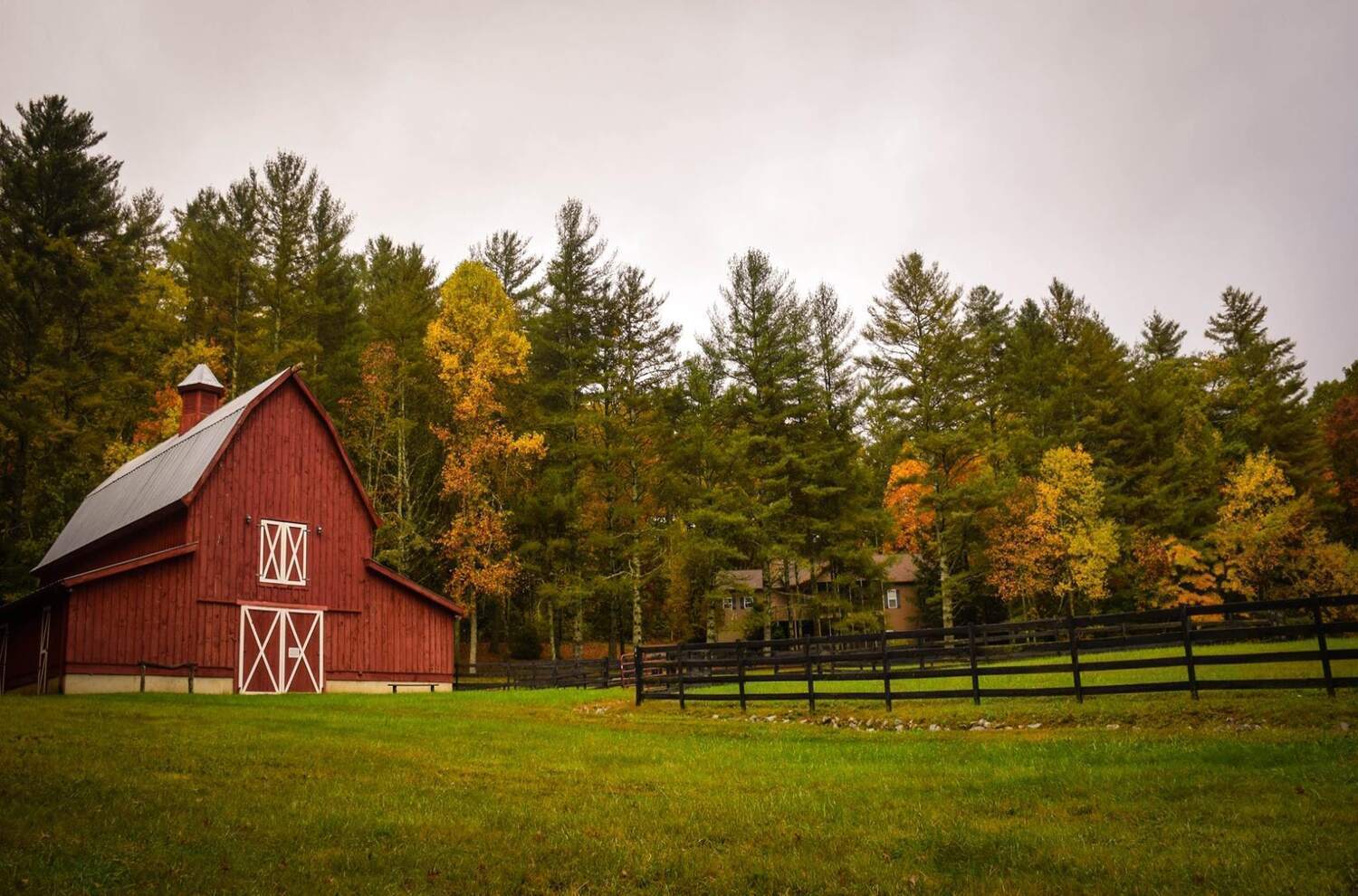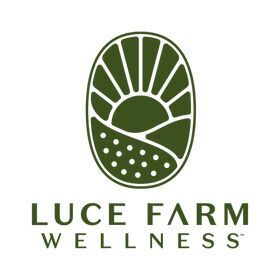When it comes to starting a hemp farm, there are many difficulties. Luckily, we were able to speak to Joe Pimentel, co-owner of Luce Farm, and learn more about how he made a local name for himself with cannabidiol (CBD) in New England.
He had been a vegetable farmer in the state of Vermont up until he was introduced to CBD. In 2016, Luce Farm was hired to grow 100 hemp plants under Vermont’s expanding hemp program. Part of the deal was they got to keep half the harvest and, with that, Pimentel and his wife began experimenting – soon developing a number of products that would eventually become a staple of their brand.
The following year, Pimentel and his team planted 3,000 hemp plants. The cultivated flower was used to develop a number of products from CBD oils to CBD honey. Through farmer’s markets, these CBD products became a hit and, since this time, Luce Farm has developed into a national brand with a local touch.
We sat down with Pimentel to learn more about his story into this industry and his advice for newcomers. If you’d like to learn more about Luce Farm and its CBD products, we invite you to check out their blog page.
Joe Pimentel Interview
What were some of the steps you had to take to start Luce Farm?
The year after we were hired to harvest, we decided to grow a larger number of plants, totaling approximately 3,000. We expected to be able to grow the raw product and sell it to companies that make CBD products, but we were unable to.
So we refined our recipes and began producing our products. We took [our CBD] to farmers’ markets and stores in Vermont, and everyone loved it. This was in 2017, before the CBD craze began. When we first started growing here, we were one of 14 farms; now there are over 600. We were one of the only vendors selling CBD products at farmers’ markets, and people went crazy for them.
We’ve been doing farmers’ markets for 15 years. After a successful day at a vegetable farmers market, we’d leave with between $300 and $500. And then we walked away with $1,500 to $2,000 in CBD products. So, that was the catalyst for us to take action.
Did you run into any challenges with these initial steps?
First and foremost, learning about CBD was a huge challenge. Learning about cannabis products as well as CBD. And learning how to put them together. Also, learning about the differences in extraction methods. Also discussed are the distinctions between isolates, broad-spectrums, and full-spectrums.
The way we sell stuff is by educating the public about the truth and what we believe. We believe in organic farming, we believe in full-spectrum, we believe in traceable products that you can trace back to our farm.
That was the biggest challenge – educating ourselves on this whole new market. We didn’t want to just go out and sell CBD because we thought it was cool. We knew we had a powerful medicine on our hands. So, we wanted to make sure we were giving the best medicine we could.
The other challenges – and they’re probably less challenging now – were trying to accept credit cards. Our bank shut us down, our insurance company shut us down. Trying to run a legitimate business in the hemp, CBD, cannabis world is challenging.
FEATURED BRAND
For high-quality CBD products straight from the heart of Vermont, we invite you to check out Luce Farm.
How did you tackle marketing in the early stages?
We couldn’t go online right away. We started selling in farmers’ markets and small local stores in the state. The state of Vermont was super awesome about the CBD business. They were allowing stores to sell it, they were allowing restaurants to use it in foods. So, that’s how we initially started. My wife and I just went out to local stores and sold the products.
We then launched it online and became CannaPlanners’ first website. We met them while they were starting their business and hired them to build our website for us. We knew payment processors would not accept us at that time. But we had a PayPal account, so we set up this convoluted system in which people would place orders on our website and we’d receive an email about it. And I completed all of these transactions myself. When I received that email, I would create an invoice on PayPal and send it via email. Then the people could pay with PayPal.
So, it wasn’t like conventional ordering. We had to be very crafty about how we wanted to do it. It took quite a while for PayPal to catch on and when they finally did, they shut us down. But we kept rolling with it until we tried out a cryptocurrency thing – that was terrible. We tried doing e-checks too. Luckily, in 2018 or 2019, Square started accepting CBD customers. We were 1 of 15 in their pilot program and we’ve been with them ever since.
More to your point about marketing – we’re still unable to do paid marketing on social channels. We rely on email marketing, word-of-mouth, and through the press and talking to as many people as we can just to get our name and brand out there. All with the premise of not just trying to sell our products, but also being a trusted resource that people can ask about CBD and how it’s grown – since we’re fully integrated, we can answer every question about our products. Whether it’s growing it, whether it’s drying it and curing it, whether it’s extracting it, whether it’s manufacturing and selling it. I think that’s the real thing – being able to market through transparency.
If you were to give advice to someone just starting a CBD business, what would be some things you suggest they avoid?
It really depends on what their goal of starting a business is. If they’re strictly interested in making money, my advice is going to make no sense. Obviously, we all need to make money to further our business. But in the CBD world especially, we see all these brands coming out that make products out of isolates and source the cheapest ingredients they can to improve their bottom line. And I think that’s the biggest mistake anybody can make.
I think in order to survive in this market and build a growing business, you need to have quality first. The money will come, but you need quality and integrity in your product. Make sure you know exactly what your formulations are. Make sure you know exactly what’s in that bottle that you’re selling to somebody.
People are putting this stuff in their bodies, so we want to make sure we’re giving them the highest quality products that we can. That’s what we based our business on and that would be the best advice I could give to anybody.
If you were to guesstimate, how much capital would one need to start a CBD business from scratch?
That’s interesting because there are so many different CBD businesses. If you’re talking about a fully-integrated business where you’re growing yourself, extracting, manufacturing, marketing, selling yourself – you need a lot of capital. And I mean a lot – it’s really, really hard.
But I think what we’re learning more is to let people use their talents. It depends on what your mission is in starting a business. Are you a farmer, are you a marketing person, are you a lab tech? There are different branches that require different amounts of capital to grow.
So that would be a difficult question to answer in terms of dollars. For example, a farmer with a brand company who comes and says, “Hey, I want you to grow certified organic hemp for me” can do so for tens of thousands of dollars. Obviously, this depends on the size of the plant.
You want to open an extraction lab? You’ll need a million dollars to build your laboratory. You want to start a marketing company? You’ll need millions of dollars to establish that marketing company. That money has undoubtedly been spent over the last five years. But we did everything a little guerrilla-style. Unfortunately, in today’s world, marketing is extremely expensive, and that is where it all goes.
To put it simply, starting a fully integrated cannabis company from seed to shelf would cost millions of dollars.
What did you consider when sourcing ingredients for your products?
First and foremost, you must understand that your supply chain will always exist. Because you never know when one of your products will be successful, necessitating the production of a large quantity. We ran into this issue with our hemp-infused honey. We had a difficult time finding a consistent, high-quality, locally produced honey. So, I believe you should verify supply chains to ensure they can supply.
Certified organic is also important to me. The reality is there are important procedures for organic manufacturers and producers to follow. Whether they’re a good company or not, they’re being watched a little bit – so, we really try to make everything as certified-organic as we can.
And then less is more, in my opinion. We’ve avoided making certain products because they need harsh emulsifiers. Or ingredients that aren’t good for the planet or people. That’s been our number one consideration [when sourcing ingredients].
For example, water-soluble CBD – I could sell gazillions of freaking seltzers with CBD in them, but we haven’t done so yet because we don’t have an emulsifying agent that we feel comfortable using in our products. Honey straws, too – I know I could sell a million of them for $5 each. But I’m not going to introduce all those straws into the world.
I think sourcing quality ingredients that are good for people and the planet has been our backbone.
What actions does your company take to ensure customer safety and satisfaction?
We offer serious customer service where we make sure people know they can contact us – and, by us, I mean me and my wife handle most of the customer service. If you have questions about the product or how to take the product, we’re on the phone with people many hours a day. I think customer service is high up on that list.
Then we have our own manufacturing facility and we’re certified by the state as a food processing facility. So, we’re inspected by the Department of Health and produce everything the same way we would for food quality.
I think adhering to food-quality standards when producing these products – even our cosmetic products such as our salves and coconut oil. We just pride ourselves on every jar and take the utmost time in making sure that whatever we put in those jars or those bottles, we would give to our children and our family as well.
Have you noticed any trends when it comes to consumer behavior?
We have extremely high customer retention. We have a subscription program on our website, and hundreds of members are automatically subscribed to products.
Basically, we’re a regional brand, correct? We are well-known in the Northeast, and the majority of our sales occur here. However, since the [COVID-19] pandemic, the majority of stores have either closed or significantly reduced their order volume. So we’ve switched to our online presence and are attempting to compete with those national brands.
Customer loyalty to us is extremely high. We receive numerous reports that our products differ from other products on the market. We get a lot of reports from people who have tried other products and they don’t work, but when they try ours, they do. So that’s awesome.
I think over the course of a couple of years, there’s been a gross of less-quality products on the market than higher-quality products. I think consumers have been scared off by that a little bit. But I do think that when consumers find a brand that they like or a product that they like, they’re returning consistently.
As your business continues to develop, have you come across any unexpected difficulties?
The biggest difficulty obviously is the whole marketing challenge. Not only is this not being able to do paid ads on social [media] and stuff. The marketing challenge is us not necessarily agreeing with the marketing these marketing agents are doing – around isolates and broad-spectrum and all that.
You have these other CBD companies that are primarily brand and marketing companies and they really care about the bottom line. So, they may not be using the best ingredients. But they have major marketing dollars whereas we invest most of our money into quality rather than marketing, right? And they’re using those marketing dollars to educate the public on things that might not be true.
In my mind, that’s one of the biggest challenges – debunking the myths around CBD and cannabinoids.
In your opinion, what allows a company to stand out in this industry?
We base our business on transparency and I think that’s what allows these companies to stand out. Being able to say where it’s grown, being able to say how it’s extracted, being able to say who’s manufacturing it. The majority of companies out there cannot answer the hard questions.
If you can answer the hard questions, you’re gonna stand out. But you also have to educate your consumers to be able to ask those questions. A lot of consumers don’t know the difference between full-spectrum, broad-spectrum, and isolate – the difference between these different products. When they go to the shelf, they see CBD, and if one’s $20 and one’s $40- and even $60- they’re going to go for the $20 one. So, educating consumers is paramount.
Any final thoughts you’d like to share?
I’ve been a part of a bunch of different businesses in my life – from construction to woodworking to farming and producing food – and [CBD] is the most rewarding business I’ve been a part of in terms of customer satisfaction. Literally, we get numerous messages per week, often daily, just about how we’re helping people and that’s been the biggest reward in starting a CBD business.
Paul James is a seasoned cannabis and CBD writer and expert. He is a mental health blogger who advocates CBD as a natural alternative to prescription medications. You can read more about this and other natural alternatives on his blog: https://bedlamite.co/."


